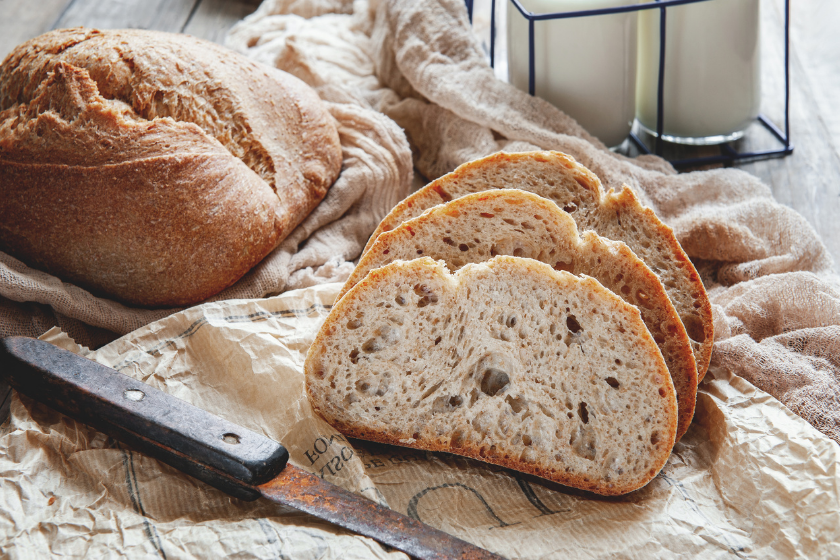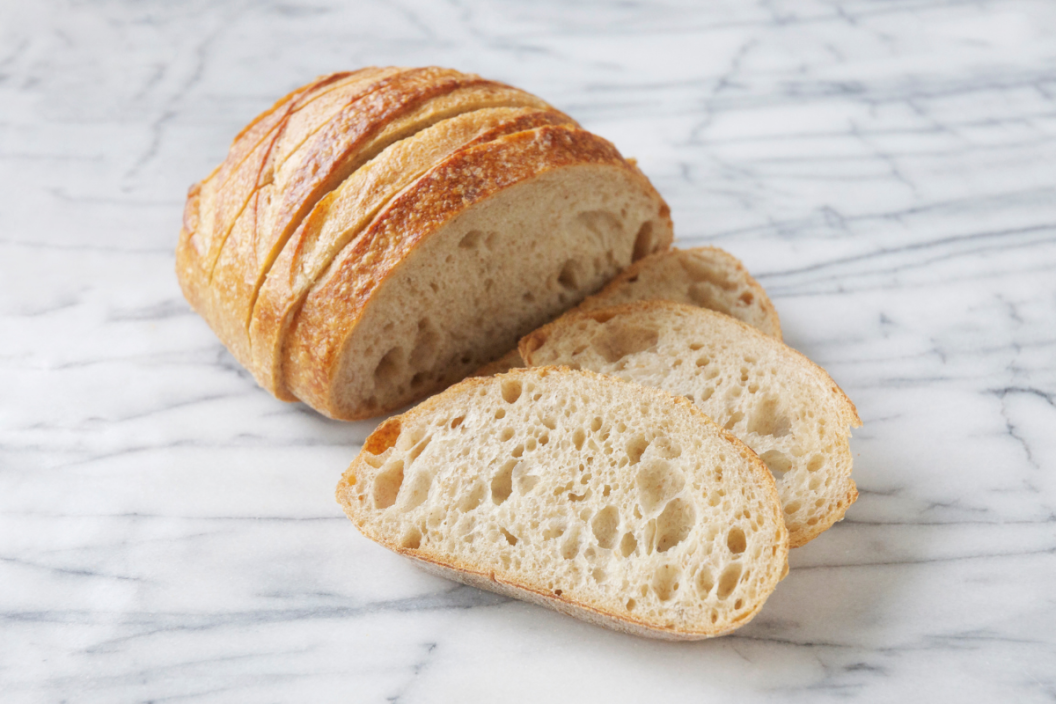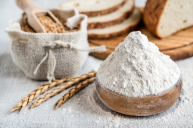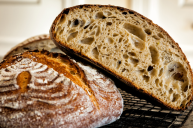Even though sourdough bread existed way before COVID, isolation and social distancing drew people to their kitchens, becoming interested in testing their bread-making skills. This is where sourdough bread suddenly became popular, as it seems everyone was making their Instagrammable version of it, from celebrities to those whose only idea of cooking was clicking "order" on Postmates. But is sourdough bread actually healthy or is it another trend that will fade away like sushi tacos and cronuts? Here's what we know.
What is Sourdough Bread?

Sourdough bread is naturally leavened bread that's made with wild yeast instead of the commercial kind. It's fairly easy to make at home and once you try it for the first time, you get motivated to do it again, and again, and again.
The process begins with making a sourdough starter by mixing flour, salt, and water. The starter can be made with any flour, but it's most usually made with white bread flour or wholemeal bread flour. It will take you about five days to make your starter as it takes a while to activate the bacteria, but once it's ready, you can use it for years to come as long as you keep on "feeding it" with more flour over time. The fermentation process gives sourdough its distinctive sour flavor and light, airy texture.
Once your starter has fermented and it's ready to use, mix it with additional flour, water, salt, and olive oil to make the dough. Once you thoroughly mix it, you need to leave it to rest and rise. This makes the dough more malleable and easier to work with. Now, all that's left to do is shape and score your sourdough loaf, and get it ready for baking. When it's done and you cut it through, you'll notice plenty of "holes" in your loaf. This is due to the fermentation process that occurs in the starter.
Health Benefits of Sourdough Bread

So, what makes sourdough bread that different from regular commercial-yeast-made bread? And is it healthier than white bread?
It's All Natural
Sourdough bread is made using only a few ingredients and there's no need for milk, eggs, sweeteners, additions, preservatives, fillers, extra yeast, or artificial ingredients. The fermentation that occurs is natural and it's the reason for its enhanced flavor as the organic acids are created as a byproduct.
It Has More Bioavailable Nutrients
Your body can absorb nutrients more easily from sourdough bread because of the lactic acid it contains. Lactic acid lowers the levels of pH in the bread and it neutralizes levels of phytates, which are inhibiting your micronutrient absorption.
Additionally, lactic acid increases the bioavailability of ingredients, meaning that nutrients from the bread are more quickly and readily available for your body to use. This is why when you eat sourdough bread, you're able to absorb higher levels of its rich nutritional profile, especially minerals like calcium, magnesium, and iron, as well as B vitamins.
It's Easily Digestible
Even though sourdough bread isn't gluten-free, it's less likely to cause food intolerances, bloating, and digestion issues. The natural fermentation process actually breaks down some of the gluten, making it more digestible. This is especially important for people who struggle to digest gluten or have mild gluten intolerances that make them unable to eat regular white bread.
It's a Natural Prebiotic
Sourdough is higher in dietary fiber than regular white bread, which makes it a prebiotic— or food for the beneficial bacteria in your gut. Having a high variety of bacteria in your gut improves your digestion, promotes the health of your entire digestive system, and increases nutrient absorption from all foods that are a part of your diet.
It Has a Lower Glycemic Index
Sourdough bread has a glycemic index of 54 which makes it much lower than regular white bread, at around 72-90. This is because of its long fermentation process that lowers its starch content. A lower glycemic index means lower glucose spikes and insulin sensitivity, making it suitable for those trying to pay more attention to their carbohydrate intake, blood sugar levels, and inflammation.
It's High in Antioxidants
The lactic acid bacteria are also responsible for an increased level of antioxidants in sourdough bread compared to other types of bread. Antioxidants help support your immune system and fight inflammation and free radicals from creating oxidative damage and causing disease.
Gluten-Free Sourdough Bread
Yes, there is a gluten-free version of sourdough bread and it's usually made with any type of gluten-free flour or a mix of different flours. Even though traditional sourdough is easier to digest than regular white bread or even whole wheat bread, it's still not suitable for those who have strong gluten sensitivity, allergies, or autoimmune diseases such as celiac disease or Hashimoto's disease.
Final Thoughts
Sourdough bread is a healthier bread option that brings on a variety of health benefits to your plate. It's recommended by nutritionists not just for those who are enjoying a healthy diet, but also for those who struggle with digesting regular bread, fight higher levels of inflammation, or are trying to keep their blood sugar levels within healthy parameters.




